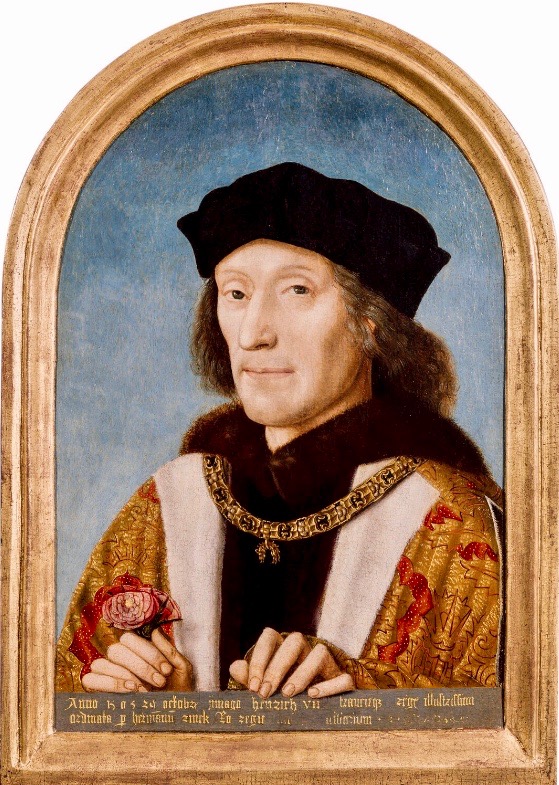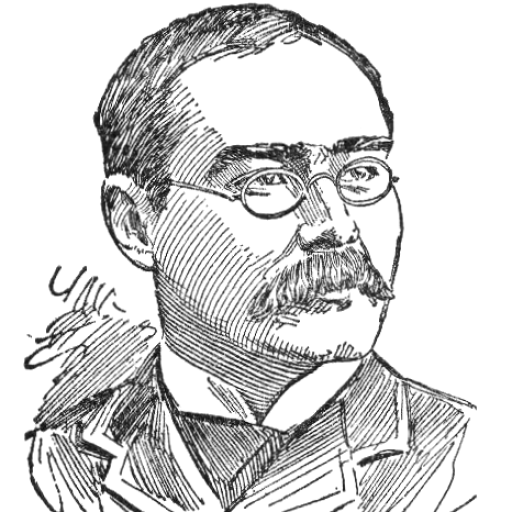The wisest thing, we suppose, that a man can do for his land / Is the work that lies under his nose, with the tools that lie under his hand…

Kipling’s subtitle for this poem ‘The Tudor Monarchy’ (Illustrated here is a portrait of the first Tudor monarch, Henry VII). The poem’s theme is that good government consists not of initiating strange and wonderful new initiatives but of sticking to the basic jobs of making society work.
The Tudor dynasty ruled England from the coronation of Henry VII in 1485, after his victory over the infamous “my kingdom for a horse” Richard III, to the death of Queen Elizabeth I in 1603. The Tudor period saw the development of “good government”: authority was centralized, the warlords were brought under control, law and order were established, the legal system developed, tax collection systematized, and parliament became stronger.
We and our rulers are only now re-learning this simple lesson. Only very gradually is the realization sinking in that the first priority of a President or a Prime Minister “is the work that lies under his nose, with the tools that lie under his hand” – providing citizens with decent education and health services, as well as assuring them a modicum of personal safety. Likewise in foreign aid we are only starting to learn that the best way to help poor countries is not through ostentatious projects such as steel mills and giant dams; it is by finding how people in the country are coping with their problems, and what local initiatives supported by small interventions from foreign donors can help such local initiatives – again “the work that lies under our nose, with the tools that lie under our hand”.
The King’s Job
Once on a time was a King anxious to understand What was the wisest thing a man could do for his land. Most of his population hurried to answer the question, Each with a long oration, each with a new suggestion. They interrupted his meals - he wasn't safe in his bed from 'em - They hung round his neck and heels, and at last His Majesty fled from 'em. He put on a leper's cloak (people leave lepers alone), Out of the window he broke, and abdicated his throne. All that rapturous day, while his Court and his Ministers mourned him, He danced on his own highway till his own Policemen warned him. Gay and cheerful he ran (lepers don't cheer as a rule) Till he found a philosopher-man teaching an infant-school. The windows were open wide, the King sat down on the grass, And heard the children inside reciting: "Our King is an ass." The King popped in his head: "Some people would call this treason, But I think you are right," he said; "Will you kindly give me your reason?" Lepers in school are as rare as kings with a leper's dress on, But the class didn't stop or stare; it calmly went on with the lesson: "The wisest thing, we suppose, that a man can do for his land, Is the work that lies under his nose, with the tools that lie under his hand." The King whipped off his cloak, and stood in his crown before 'em. He said: "My dear little folk, Ex ore parvulorum - (Which is Latin for ‘Children know more than grown-ups would credit’) You have shown me the road to go, and I propose to tread it." Back to his Kingdom he ran, and issued a Proclamation, "Let every living man return to his occupation!" Then he explained to the mob who cheered in his palace and round it, "I've been to look for a job, and Heaven be praised I've found it!"
